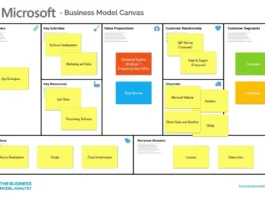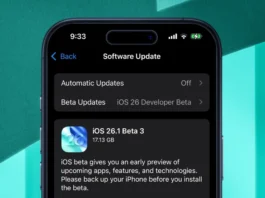So, you’ve heard about Sora , OpenAI’s new text-to-video model? It’s mind-blowing, right? The kinds of videos it can create from just a text prompt are absolutely insane. But, (and this is a big but) it’s not available to the public yet. That hasn’t stopped scammers, though. They’re already flooding the Apple App Store with fake Sora apps , preying on eager users who can’t wait to try it out. Let’s be honest – nobody wants to download malware disguised as the next big thing. The problem is not unique to Apple’s App Store. Similar schemes have popped up on Android devices and other platforms that provide software to users. This is not just a matter of inconvenience or annoyance. These fake apps can lead to data theft, financial loss, and a compromised device.
Why Are Fake Apps Slipping Through the Cracks?

Here’s the thing: app store security isn’t always perfect. While Apple has a stricter review process than some other platforms, determined scammers can still find ways to sneak malicious apps past the gatekeepers. One common tactic is to create a seemingly harmless app that only turns malicious after it’s been downloaded. It’s like a Trojan horse, waiting to unleash its payload. This is especially dangerous because it can be difficult to detect even with antivirus software. So, how do they do it?
One key to understanding this problem is recognizing the difference between a genuine application and a Sora app scam . The app review processes often focus on obvious malware signatures and blatant violations of app store guidelines. Scammers, however, are adept at creating apps that appear legitimate at first glance, only to reveal their malicious intent later on, or under specific conditions that evade initial detection. They might delay malicious activities or trigger them based on user behavior, geographical location, or time. This sophistication challenges even the most robust security measures, highlighting the constant need for vigilance among both app store providers and users.
How to Spot a Fake Sora App (and Protect Yourself)
Alright, let’s get practical. How can you avoid becoming a victim? Here’s my take, based on spotting questionable apps:
- Check the Developer: This is huge. Is the developer OpenAI? If not, that’s a massive red flag. Look for the official OpenAI developer name on the App Store. Don’t just trust the logo; verify the name.
- Read the Reviews (Carefully): Don’t just look at the star rating. Read the actual reviews. Are there a lot of generic, positive reviews that sound fake? Do people mention suspicious behavior? This is key to identifying a rogue application.
- Permissions, Permissions, Permissions: Does the app ask for excessive permissions? Why does a video app need access to your contacts or location? Be wary of apps that ask for more than they need.
- Too Good to Be True? It Probably Is: If an app promises features that seem impossible or offers Sora access way before anyone else, it’s likely a scam.
- Trust Your Gut: Seriously, if something feels off, don’t download it.
A common mistake I see people make is downloading apps without carefully checking the developer’s authenticity. Scammers often use names that are very similar to legitimate developers, hoping that users won’t notice the subtle difference. Therefore, always verify the developer’s name, address and contact information. Also, keep in mind that it is possible that the official Sora app may exist, but this should be available on the official source – the OpenAI website – before it hits the app store.
What Happens If You Downloaded a Fake App?
Okay, so you messed up and downloaded a suspicious app. Don’t panic! Here’s what to do, step-by-step:
- Disconnect: Immediately disconnect your device from the internet to prevent the app from sending data or downloading more malware.
- Uninstall: Delete the app right away. Don’t just move it to a folder; uninstall it completely.
- Run a Scan: Use a reputable antivirus app to scan your device for malware.
- Change Passwords: Change the passwords for your important accounts, especially if you entered any information into the fake app.
- Monitor Your Accounts: Keep a close eye on your bank accounts and credit card statements for any suspicious activity.
And, consider reporting the app to the Apple App Store so they can take it down and prevent others from falling victim. It might seem like a small thing, but it can make a big difference. Also consider reporting to authorities that track malicious applications .
The Future of Sora and App Store Security
What fascinates me is how this situation highlights the ongoing battle between innovation and security. As AI models like Sora become more advanced and desirable, the incentive for scammers to create fake apps will only increase. App stores need to constantly improve their security measures to stay one step ahead. This includes using AI-powered detection tools, strengthening their review processes, and educating users about how to spot fake apps. According to various tech sources, app stores are working on these elements, but it is an ongoing process.
And, as users, we need to be more vigilant than ever. It’s not enough to just blindly trust the app store. We need to be proactive in protecting ourselves from scams. This means checking the developer, reading the reviews, paying attention to permissions, and trusting our gut. It’s a bit of extra work, but it’s worth it to avoid the headache (and potential financial loss) of downloading a fake app.
Remember, Sora video generation will eventually be available, but you should access it through legitimate channels. Keep an eye on the OpenAI website for official announcements and updates. Don’t fall for the hype and risk your security for early access.
FAQ About Fake Apps and Sora
How can I tell if an app developer is legitimate?
Check their website (if they have one), look for a real address and contact information, and see if they have other reputable apps in the store. Legitimate developers usually have a track record and verifiable information.
What if I accidentally gave a fake app my credit card information?
Contact your bank or credit card company immediately to report the fraud. They can cancel your card and issue a new one. Also, monitor your statements for any unauthorized charges.
Are all new apps on the App Store potentially dangerous?
Not at all! Most developers are legitimate. But, it’s always a good idea to exercise caution and do your research before downloading any app, especially from an unknown developer.
What if I forgot where I downloaded the suspicious application from?
Check your app store download history. It should show you all the apps you’ve downloaded, along with the date and source. Also, consider running a full system scan using reliable antivirus software, or seeking assistance from a cyber security expert.
How does the Apple App Store protect users from fake apps?
Apple has a review process for all apps submitted to the App Store. They check for malware, security vulnerabilities, and violations of their guidelines. However, as we’ve seen, determined scammers can still find ways to bypass these protections. Also, user feedback helps to identify potential threats .
Will OpenAI have an official app for Sora, or will it only be web-based?
That’s still unclear. OpenAI hasn’t announced specific plans for a mobile app. It’s best to follow their official channels for updates, and exercise caution before downloading unofficial apps claiming to be Sora. Also, remember to check news about Sora before downloading.
So, keep your eyes peeled. The world of AI is exciting, but it’s also a playground for those looking to take advantage. Stay safe out there!



